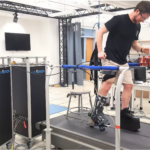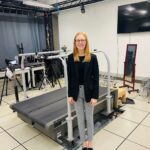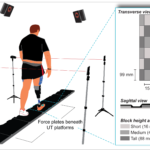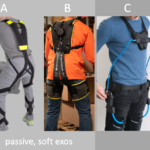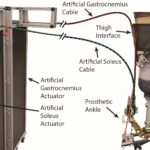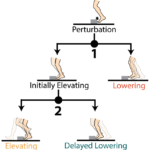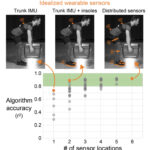Uncategorized Category
🚨 Research News has Moved/Changed to a Daily Science/Tech Blog (No Longer Posted on this Sidebar) | Link: typeshare.co/karlzelik
Dec. 7, 2023—Research updates are no longer posted here on this sidebar. Instead, I created a dedicated science blog site where I share daily research updates, advice, insights, and new publications from our Vanderbilt lab and others working in the fields of biomechanics and wearable technology. Science Blog: https://typeshare.co/karlzelik Or follow me on LinkedIn: https://www.linkedin.com/in/karlzelik/
Case Studies: How We Use Humotech Robotic Emulator System to Advance Research
Dec. 1, 2023—Humotech highlighted various ways we have used their robotic emulator system to advance translational R&D. Learn more here: https://humotech.com/case-studies/demystifying-biarticular-actuation/ https://humotech.com/case-studies/protecting-workers-backs/
Congrats to Dr. Maura Eveld on Completing her PhD
Aug. 10, 2022—Dr. Eveld successfully defended her PhD dissertation entitled “The design, implementation, and assessment of stumble recovery behaviors for robotic lower-limb prostheses and exoskeletons.” 👏 🎉 We’re proud of all she accomplished and contributed to CREATE during her time here at Vanderbilt. Next, she is off to do a postdoc in the Netherlands at the University...
New publication: Unilateral below-knee prosthesis users walking on uneven terrain: The effect of adding a toe joint to a passive prosthesis
Jun. 2, 2022—Link: https://www.sciencedirect.com/science/article/pii/S0021929022001671 Abstract Lower limb prosthesis users cite uneven terrain as a challenging surface to walk on. We sought to determine whether adding a Flexible toe joint to a prosthetic foot would be preferred by unilateral below-knee prosthesis users relative to a Locked (non-articulating) toe joint for walking on uneven terrain. We also quantified lower...
New publication: An ergonomic assessment tool for evaluating the effect of back exoskeletons on injury risk
Feb. 11, 2022—Excited to share our new publication in the Journal of Applied Ergonomics: https://www.sciencedirect.com/science/article/abs/pii/S0003687021002660 Or check out the accompanying online ergonomic assessment calculator: https://lab.prd.vanderbilt.edu/zelik/resources/exo-lifft/ Abstract Low back disorders (LBDs) are a leading injury in the workplace. Back exoskeletons (exos) are wearable assist devices that complement traditional ergonomic controls and reduce LBD risks by alleviating...
New Publication: Development and Evaluation of a Prosthetic Ankle Emulator With an Artificial Soleus and Gastrocnemius
Jan. 5, 2022—Link: https://asmedigitalcollection.asme.org/medicaldevices/article/15/4/045001/1120619 Abstract In individuals with transtibial limb loss, a contributing factor to mobility-related challenges is the disruption of biological calf muscle function due to transection of the soleus and gastrocnemius. Powered prosthetic ankles can restore primary function of the mono-articular soleus muscle, which contributes to ankle plantarflexion. In effect, a powered ankle acts like an...
New Publication: On the Basis for Stumble Recovery Strategy Selection in Healthy Adults
Jul. 28, 2021—Link: https://asmedigitalcollection.asme.org/biomechanical/article/143/7/071003/1098853 Abstract Healthy adults employ one of three primary strategies to recover from stumble perturbations—elevating, lowering, or delayed lowering. The basis upon which each recovery strategy is selected is not known. Though strategy selection is often associated with swing percentage at which the perturbation occurs, swing percentage does not fully predict strategy selection; it is...
New publication: A promising wearable solution for the practical and accurate monitoring of low back loading in manual material handling
Jul. 1, 2021—Link: https://www.mdpi.com/1424-8220/21/2/340/htm Abstract (1) Background: Low back disorders are a leading cause of missed work and physical disability in manual material handling due to repetitive lumbar loading and overexertion. Ergonomic assessments are often performed to understand and mitigate the risk of musculoskeletal overexertion injuries. Wearable sensor solutions for monitoring low back loading have the potential to...

